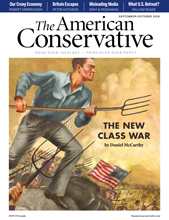
The United States' foreign policy and military decisions are significantly influenced by the opinions of its citizens. This democratic principle ensures that the government remains accountable to the people. However, when the U.S. engages in military operations around the world, these decisions often face objections from various segments of society, which are voiced in different media outlets. Despite this, mainstream media frequently ignores such objections, leading alternative sources like ANTIWAR.COM to cover the ethical, economic, and political issues associated with U.S. war efforts.
In today's media landscape, large corporations that benefit from war have a vested interest in promoting propaganda and biased information that aligns with their objectives. These companies exert considerable influence over the news and information that most Americans consume. Social media platforms, which are increasingly the primary source of news for many people, are controlled by these powerful entities. For instance, Facebook has gained notoriety for promoting biased content to shape public opinion in ways that serve its interests. This pervasive bias in media not only skews public perception but also impacts the reporting on U.S. military actions globally.

The situation is further complicated by the fact that if mainstream media platforms benefit from war efforts or adhere to a particular agenda, they are likely to suppress alternative viewpoints. This deliberate omission of diverse perspectives prevents a balanced and comprehensive understanding of the issues at hand. Consequently, the American public is often presented with a one-sided narrative that supports continued military engagement.
Moreover, the war in Afghanistan, which was highly unpopular, particularly during the Obama administration, is a case in point. Despite widespread disapproval, many Americans remain sensitive to the events of September 11, 2001, and the subsequent war on terror led by Al Qaeda. The annual remembrance of 9/11 and its profound traumatic impact on the national psyche make it challenging to criticize efforts aimed at combating terrorism. As a result, opinions opposing such efforts are often suppressed or under-reported in the media, for fear of backlash and public disapproval.

This complex interplay of corporate interests, media bias, and public sentiment underscores the challenges in ensuring transparent and accountable governance in the realm of foreign policy and military decision-making. The dominance of profit-driven media narratives over genuine public discourse raises critical questions about the integrity of information that shapes public opinion and policy decisions. Many platforms like The American Conservative allows groups to express their opinions based on their beliefs and in support of specific policies, political groups, and for profit. In some ways, this is the basis of freedom of speech in America. Since 2002, this magazine has released and has influenced many major decisions in American history, including voting outcomes in major elections. To foster a more informed and engaged citizenry, it is essential to promote diverse media sources and encourage critical examination of the information presented to the public.
No comments:
Post a Comment